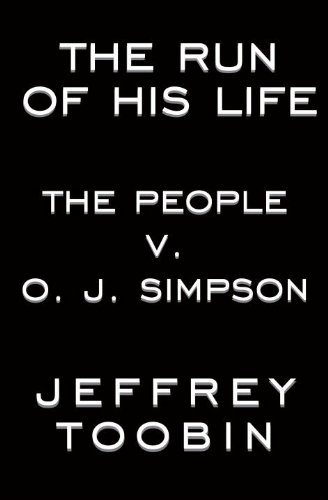NON-FICTION GREAT READS
Discover the best non-fiction books with our curated list of great reads. Explore inspiring biographies, insightful histories, and thought-provoking essays for your next favorite book.

Book
The Day the World Came to Town
by Jim DeFede
"For the better part of a week, nearly every man, woman, and child in Gander and the surrounding smaller towns stopped what they were doing so they could help. They placed their lives on hold for a group of strangers and asked for nothing in return. They affirmed the basic goodness of man at a time when it was easy to doubt such humanity still existed." When thirty-eight jetliners bound for the United States were forced to land in Gander, Newfoundland, on September 11, 2001, due to the closing of United States airspace, the citizens of this small community were called upon to come to the aid of more than six thousand displaced travelers. Roxanne and Clarke Loper were excited to be on their way home from a lengthy and exhausting trip to Kazakhstan, where they had adopted a daughter, when their plane suddenly changed course and they found themselves in Newfoundland. Hannah and Dennis O'Rourke, who had been on vacation in Ireland, were forced to receive updates by telephone on the search for their son Kevin, who was among the firefighters missing at the World Trade Center. George Vitale, a New York state trooper and head of the governor's security detail in New York City who was returning from a trip to Dublin, struggled to locate his sister Patty, who worked in the Twin Towers. A family of Russian immigrants, on their way to the Seattle area to begin a new life, dealt with the uncertainty of conditions in their future home. The people of Gander were asked to aid and care for these distraught travelers, as well as for thousands more, and their response was truly extraordinary. Oz Fudge, the town constable, searched all over Gander for a flight-crew member so that he could give her a hug as a favor to her sister, a fellow law enforcement officer who managed to reach him by phone. Eithne Smith, an elementary-school teacher, helped the passengers staying at her school put together letters to family members all over the world, which she then faxed. Bonnie Harris, Vi Tucker, and Linda Humby, members of a local animal protection agency, crawled into the jets' cargo holds to feed and care for all of the animals on the flights. Hundreds of people put their names on a list to take passengers into their homes and give them a chance to get cleaned up and relax. The Day the World Came to Town is a positively heartwarming account of the citizens of Gander and its surrounding communities and the unexpected guests who were welcomed with exemplary kindness.

Book
America the Vulnerable
by Stephen E. Flynn
Flynn gives an alarming and authoritative view of what America still hasn't done--and what it needs to do--to provide security in the face of new terrorist attacks.


Book
The Culture of Fear
by Barry Glassner
There has never been another era in modern history, even during wartime or the Great Depression, when so many people have feared so much. Three out of four Americans say they feel more fearful today then they did twenty years ago. The Culture of Fear describes the high costs of living in a fear-ridden environment where realism has become rarer than doors without deadbolts.Why do we have so many fears these days? Are we living in exceptionally dangerous times? To watch the news, you'd certainly think so, but Glassner demonstrates that it is our perception of danger that has increased, not the actual level of risk. The Culture of Fear is an expose of the people and organizations that manipulate our perceptions and profit from our fears: politicians who win elections by heightening concerns about crime and drug use even as rates for both are declining; advocacy groups that raise money by exaggerating the prevalence of particular diseases; TV newsmagazines that monger a new scare every week to garner ratings.Glassner spells out the prices we pay for social panics: the huge sums of money that go to waste on unnecessary programs and products as well as time and energy spent worrying about our fears.


Book
Freakonomics
by Steven D. Levitt
"Steven D. Levitt and co-author Stephen J. Dubner show that economics is, at root, the study of incentives - how people get what they want, or need, especially when other people want or need the same thing. In Freakonomics, they set out to explore the hidden side of...well, everything. The inner workings of a crack gang. The truth about real-estate agents. The myths of campaign finance. The telltale marks of a cheating schoolteacher. The secrets of the Ku Klux Klan."--BOOK JACKET.Title Summary field provided by Blackwell North America, Inc. All Rights Reserved


Book
Busting Vegas
by Ben Mezrich
The Mit Whiz kid who brought the casinos to their knees. He played the casinos around the world with a plan to make himself richer than anyone could possibly imagine--but it would nearly cost him his life.




Book
Outrage
by Vincent Bugliosi
A best-selling account by the author of Helter Skelter outlines the main reasons O.J. Simpson was acquitted of murder, from the jury's makeup to the incompetence of the prosecutors. Reprint.

Book
Celebration, U.S.A.
by Douglas Frantz
In 1997, after the first residents relocated to Celebration, Florida--Disney's "model" town of self-sufficiency, the authors and their two children moved in to participate and report on this new venture. This account chronicles the family's experiences over two years. New Afterword. 8-page photo insert.

Book
Finders Keepers
by Mark Bowden
The author of Black Hawk Down and Killing Pablo chronicles the true story of a longshoreman from South Philadelphia who found $1 million lost from a casino and promptly shared it with everyone he knew. Reprint.


Book
Be True to Your School
by Bob Greene
The bestselling author of Good Morning, Merry Sunshine and American Beat captures, in these high school diaries, the joys and pains of adolescence as they are experienced. Excerpts in Esquire and Family Circle.


Book
The Paradox of Choice
by Barry Schwartz
In the spirit of Alvin Toffler’s Future Shock, a social critique of our obsession with choice, and how it contributes to anxiety, dissatisfaction and regret. This paperback includes a new P.S. section with author interviews, insights, features, suggested readings, and more. Whether we’re buying a pair of jeans, ordering a cup of coffee, selecting a long-distance carrier, applying to college, choosing a doctor, or setting up a 401(k), everyday decisions--both big and small--have become increasingly complex due to the overwhelming abundance of choice with which we are presented. We assume that more choice means better options and greater satisfaction. But beware of excessive choice: choice overload can make you question the decisions you make before you even make them, it can set you up for unrealistically high expectations, and it can make you blame yourself for any and all failures. In the long run, this can lead to decision-making paralysis, anxiety, and perpetual stress. And, in a culture that tells us that there is no excuse for falling short of perfection when your options are limitless, too much choice can lead to clinical depression. In The Paradox of Choice, Barry Schwartz explains at what point choice--the hallmark of individual freedom and self-determination that we so cherish--becomes detrimental to our psychological and emotional well-being. In accessible, engaging, and anecdotal prose, Schwartz shows how the dramatic explosion in choice--from the mundane to the profound challenges of balancing career, family, and individual needs--has paradoxically become a problem instead of a solution. Schwartz also shows how our obsession with choice encourages us to seek that which makes us feel worse. By synthesizing current research in the social sciences, Schwartz makes the counterintuitive case that eliminating choices can greatly reduce the stress, anxiety, and busyness of our lives. He offers eleven practical steps on how to limit choices to a manageable number, have the discipline to focus on the important ones and ignore the rest, and ultimately derive greater satisfaction from the choices you have to make.